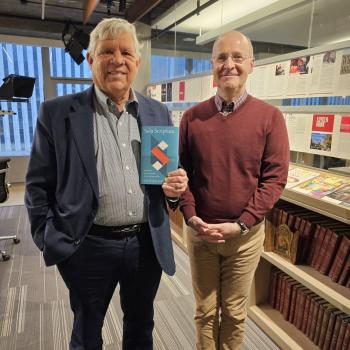Just for the record, I grew up listening to classical music and show tunes, hymns and then as a teen rock n’ roll, which kept my attention for a long time. I continued to play violin in the orchestra, right through the beginning of college. Played in the UNC chamber orchestra. I’ve always loved all kinds of music, even a bit of jazz. I remember listening to Brubeck (Take Five), the Crusaders, the Yellowjackets and Spirogyra, but not much of classic jazz until the late 80s. Jazz is an art form based on principles of improvisation on themes and musical ideas, and it takes intense and repeated listening to get it, not surprisingly since the players themselves have to listen intently to each other as they are going through the changes and riffing off of each other spontaneously.
Obviously, the big three of classic jazz in terms of instrumentalists were Miles Davis, John Coltrane, and Bill Evans, who not incidentally produced together the best selling jazz lp of all time— Kind of Blue. Coltrane was from my home town High Point N.C. learned how to play reed instruments there in school and in church. So, in due course I got more interested in jazz. Actually, I played in a summer jazz band at UNC-G (piano) in about 1968, which was a total blast. All that is by way of saying that jazz, like anything worthwhile, takes time to understand and truly appreciate. In the last 30 years I’ve become something of a jazzbo, listening to a lot of it, and so I looked forward to the new impressionistic biopic on Miles Davis’ life, named after one of his best albums— Miles Ahead.
My wife and I have often had the debate of whether we should support immoral musicians. The problem is, if we judge art on the basis of the life of the artist, we’ve have to ignore most of the great works of music, visual art, theater, etc. in the last several hundred years. There are plenty of folk who are great artists, and not very admirable persons. Miles Davis was certain such a person, and full disclosure this Miles Davis movie is full of bad language, some partial nudity and crudity of various sorts, violence and drugs. The question is whether one can get past all that, and find some redeeming value in the music. The answer is you can….. but it takes some patience. This is not a family film or a film for nervous Nellies.
In fact it is more of a tragedy, than a triumph as he deals with the period when Miles was silent for five years–1975-79, a period in which he did more coke, got into more disputes with Columbia his record company, lost his marriage to his beloved wife Francis Taylor (married from 1958-1968, who is on the cover of the Someday my Prince will Come lp. Sadly, Miles was a wife beater). If you were hoping for a movie about the classic period of about 1957-75 when we got all kinds of interesting albums from Miles Davis, you have to abandon hope. Apart from a few scenes of the recording of Sketches in Spain, with the great producer and director Gil Evans, we get basically nothing from that period. And as the credits role at the end of the film we do get a bit of Miles Davis comeback, and we could have used much more of that. Herbie Hancock, Wayne Shorter (both of whom played with Davis in the 60s), Esperanza Spaulding, and Gary Clark Jr.make up an all star band playing with the post silent period Miles. I could have watched that for hours.
But back to the issue of art and the artist. Here’s what I think— great art, including great music, is a gift from God. It comes through all sorts of vessels, some are beautiful vessels, some, not so much. In some ways it’s like prophecy in the OT. Balaam’s ass once spoke for God, but that doesn’t make me want to emulate or be an ass, if you catch my drift. Evaluate the music on its own merits, and when you do that, Miles Davis was a pioneer and a genius in various ways, and he himself ran through all sorts of experimentation that changed the face of all kinds of music. While smooth jazz is sort of its fizzy offshoot, more of a jazz influenced sort of pop music, you would not have a Chris Botti playing the trumpet like he does without Miles paving the way. You just wouldn’t. So what about the movie itself as a work of art?
First, Don Cheadle’s portrayal of Miles is remarkable, and probably will get an Oscar nomination. Ewan McGregor is not bad either. But the movie itself is flawed in various ways. It picks the wrong period of Miles life to focus on if we really want to understand him as an artist. The flashback techniques work o.k. as do the segues (one person falling down cuts to another person falling down on a very different occasion), but some of this gets repetitive. The movie, sadly includes too little of the music, and too much of the most dysfunctional period of Miles’ life, and the movie is less than 2 hours long anyway. You end up wanting more of what you hardly got, and less of what you did see. This movie should be compared to Clint Eastwood’s classic ‘Bird’ about Charlie Parker, played brilliantly by Forest Whitaker. There has yet to be a great movie made about ‘Trane. I’m still hoping it will happen. This movie reminds us that ‘ars longa, vita brevis’ is more than just a catch phrase. Miles lived from 1926-91, and he was not properly recognized for his body of work until after his death. And probably his death would have come much sooner had he not married Cicely Tyson, the actress, who got him off drugs.















